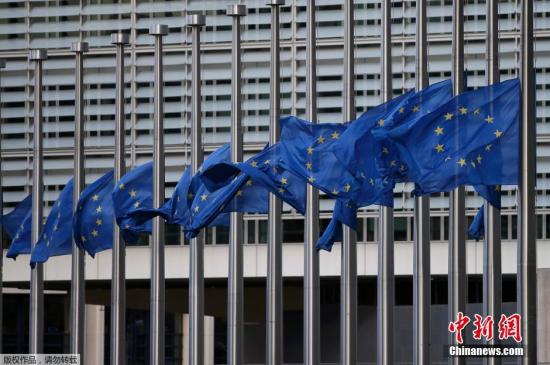China News Agency, Brussels, June 17 (Reporter De Yongjian) The EU issued a "white paper on foreign subsidies" on the 17th, claiming that foreign subsidies increasingly have a negative impact on competition in the EU market. To this end, the EU plans to use a package of policy tools in corporate mergers and acquisitions, Strengthen supervision in areas such as public procurement and applying for EU funds.
Data map: in front of the EU headquarters building.
The white paper was drafted by the European Commission, with the intention of soliciting public opinion and paving the way for the EU to introduce relevant countervailing laws. After the white paper was launched on the day, the European Commission issued an announcement explaining the content of the white paper in detail.
The announcement claimed that foreign subsidies have increasingly negatively affected competition in the EU market and have exceeded the scope of the EU's "prohibition of state assistance". In addition to the common trade subsidies, providing financial convenience for mergers and acquisitions of EU companies, directly supporting companies to operate in Europe, and even facilitating companies to win bids in EU public procurement should be listed as "foreign subsidies," but the EU seems to have "regulatory gaps."
To this end, the EU intends to use a package of policy tools to strengthen supervision, such as the establishment of market review tools for evaluation. Once a company is suspected of accepting foreign subsidies, it can initiate countervailing investigations and even take countervailing measures. However, if the business activities or investments of the companies involved in the EU The advantages of the market outweigh the disadvantages.
In order to provide financial convenience for the merger and acquisition of EU companies, the white paper is proposed to be supervised by the European Commission. Once the limit is exceeded, the enterprises receiving foreign subsidies must report the merger and acquisition behavior to the European Commission. The European Commission decides whether to take countervailing measures or directly stop the merger. .
In order to facilitate the bidding of enterprises in public procurement in the EU, the white paper invites bidders to submit the accepted government funds to the bidding department, and then the bidding department and the regulatory agency will review the existence of foreign subsidies and the impact on public procurement. outer.
For enterprises applying for EU funds, the white paper states that similar to EU public procurement, it is necessary to review whether companies accept foreign subsidies, and emphasizes that for international financial projects funded by the EU, the financial institutions responsible for implementation should also review the foreign subsidies of the applying companies.
Later on the 17th, a spokesman for the Chinese mission to the EU expressed on the white paper that he hopes that the relevant EU measures will abide by the WTO’s basic principles, avoid interference with protectionist trends, and not set up new trade barriers on the grounds of subsidies, but should operate for foreign-funded enterprises Development creates a good business environment.
The spokesman also pointed out that subsidies are commonly used policy tools in various countries, and developed countries such as Europe and the United States have been the main users of subsidy policies. The main objectives of China's subsidy measures are to encourage environmental protection and energy conservation, support technological research, development and innovation, and promote the restructuring of enterprises in compliance with WTO rules. (Finish)

